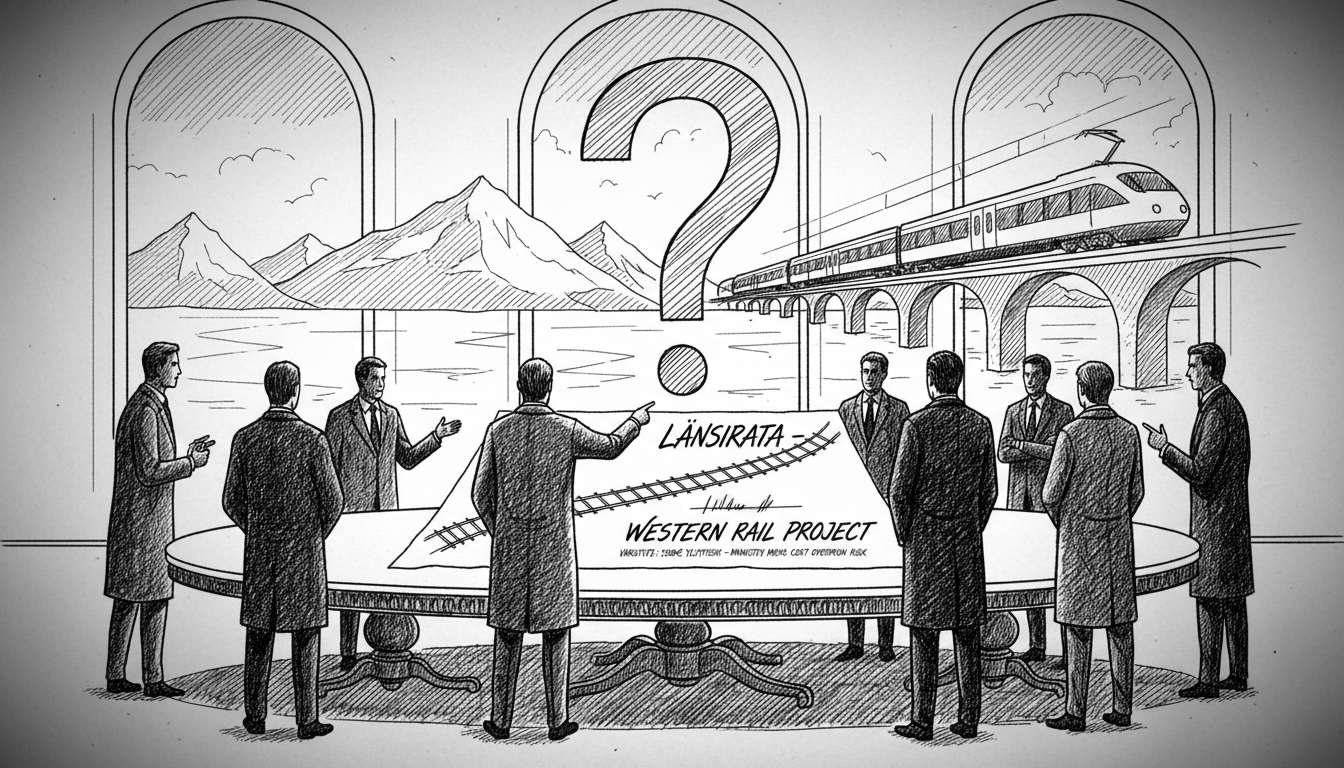The Finnish government and municipal partners reached a crucial agreement on the Western Rail project in late October. This major infrastructure initiative aims to create a one-hour train connection between Helsinki and Turku. The deal came together after extensive negotiations between state authorities and participating municipalities.
A previously undisclosed negotiation document reveals significant concerns about project costs. The Transport and Communications Ministry drafted a memo warning of potential financial risks totaling up to 150 million euros. This document highlighted substantial cost uncertainties that could impact the final project budget.
The memo specifically identified gaps in railway planning between Salo-Hajala and Nunna-Kupittaa sections. These planning deficiencies could generate additional costs ranging from tens of millions to 150 million euros. The Finnish Transport Infrastructure Agency had already flagged these concerns during earlier assessments.
Despite these warnings, municipal partners declined to formally endorse the risk assessment document. Officials from Turku, Espoo, and Salo municipalities chose not to sign the supplementary memorandum. This decision means the risk warnings don't form part of the binding shareholder agreement.
Acting Ministry Chief Olli-Pekka Rantala explained the government's position. He stated the memo aimed to increase transparency about discussed cost risks. The official noted that while signature wasn't mandatory for deal completion, understanding the risks remained important for all stakeholders.
The current project budget stands at 1.32 billion euros according to the Western Rail Company. However, the Transport Infrastructure Agency estimates costs could reach 1.5 billion euros. This discrepancy stems from different calculation methods and risk assessment approaches.
Municipalities will contribute 400 million euros to the project, matching the state's financial commitment. The Western Rail Company can borrow up to 520 million euros in additional financing. The shareholder agreement includes mechanisms to control costs within these financial boundaries.
The project represents one of Finland's largest current infrastructure investments. It aims to significantly improve connectivity between two major urban centers. Similar rail projects in Nordic countries have frequently experienced cost overruns, making cost control particularly important.
Salon city development director Mika Mannerva described the final negotiation dynamics. He noted municipalities recognized the ministry needed documentation to conclude negotiations. The unsigned memo ultimately became an internal ministry document rather than a shared agreement.
The Western Rail project now moves to city councils in Turku and Espoo for final approval. Council members will need to assess the project's viability despite the unidentified cost risks. Their decisions will determine whether Finland's ambitious rail modernization proceeds as planned.

